Dialogue Moves: Practicing Research with Amerta Movement
Wednesday Forum – 30 August 2023
I have been undertaking a fellowship that investigates how Amerta Movement practice (developed by Javanese movement artist Suprapto Suryodarmo) supports dialogue between diverse ethnic and religious communities in Indonesia. This has been done in collaboration with Samsul Maarif (CRCS, UGM), Diane Butler (Dharma Nature Time), and artists who worked closely with Pak Prapto. Engaging with CRCS has prompted me to reconsider research methodologies from my own field of dance studies and their potential contribution to religious and cross-cultural studies. In particular, the area of practice research in performing arts explores how engagement in creative practice has the potential to develop new ways of knowing. I will share how my own bodily experience and creative responses have lent themselves towards new understandings of the research enquiry on dialogue through the Amerta Movement. Finally, I consider what practice research might offer a researcher engaging in dialogue across differences, inspired by Kershaw’s call for the ‘profound challenge to established modes of knowledge production in universities that the creative impulse in practice might, at its best, always produce’ (2009, 5).


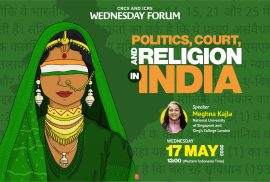
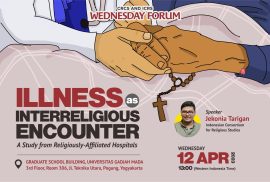
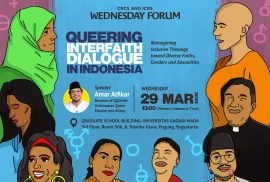



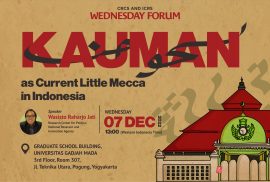
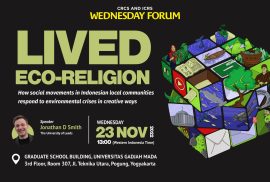
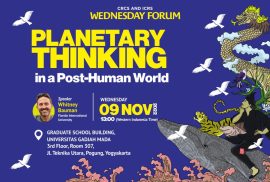
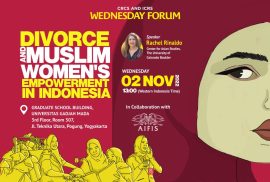
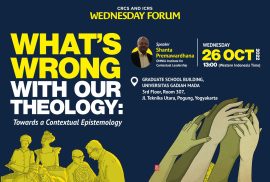
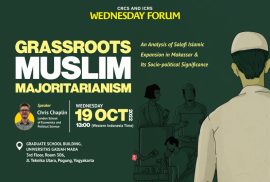
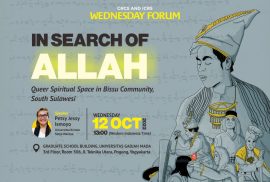
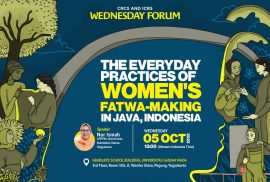
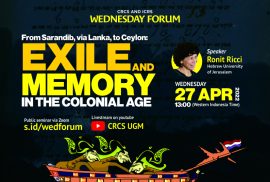
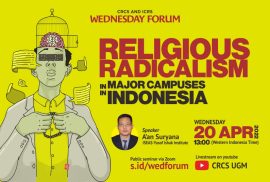
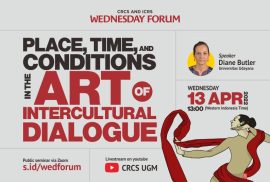

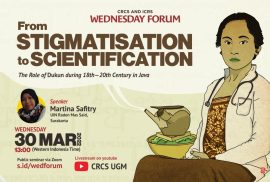
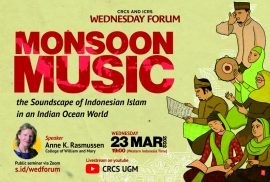
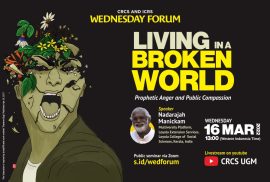
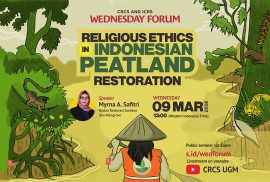
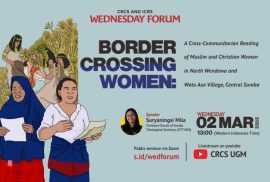

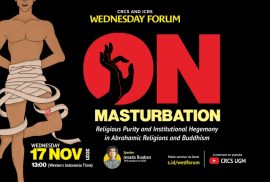
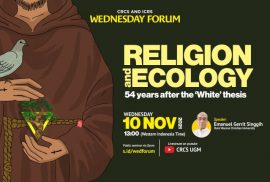

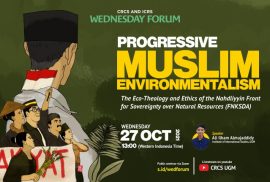

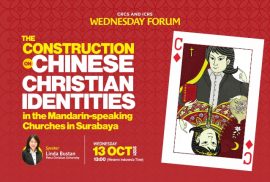
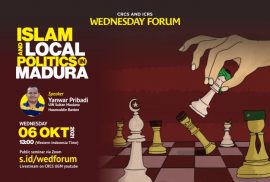
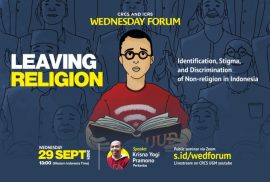

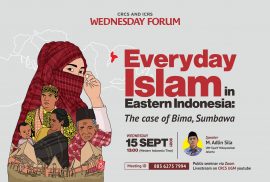

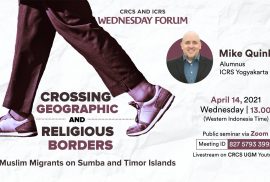
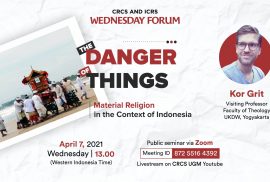
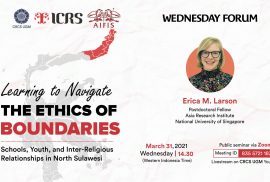
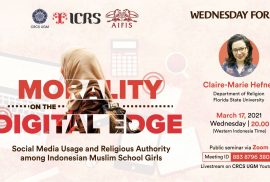
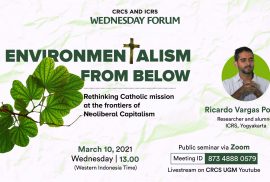
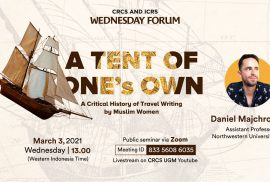
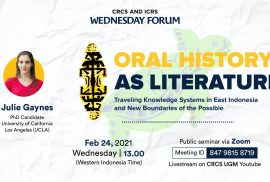
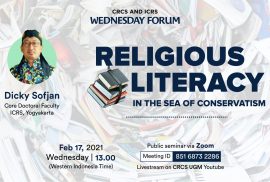
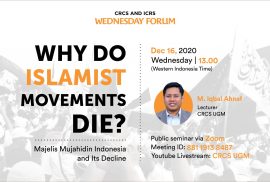
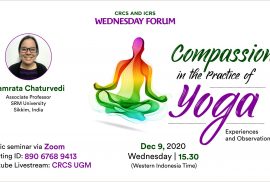
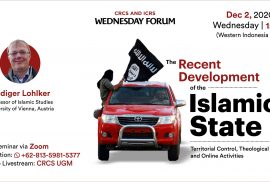
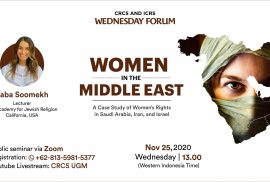
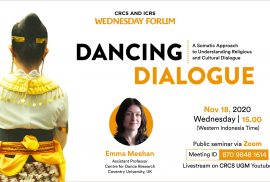
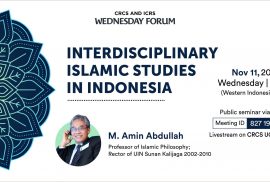
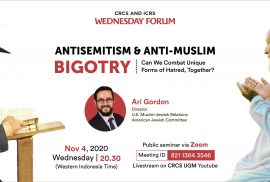
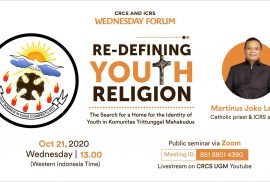
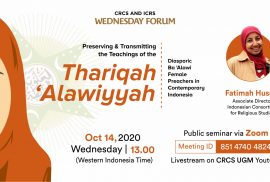

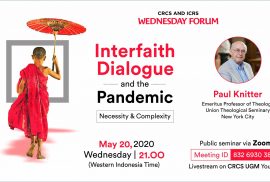

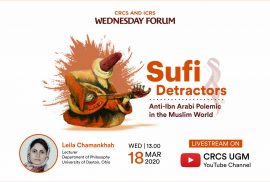

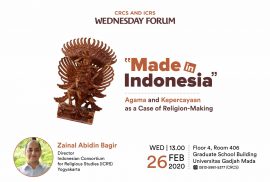
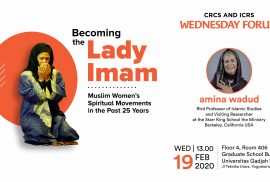
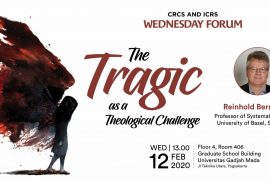

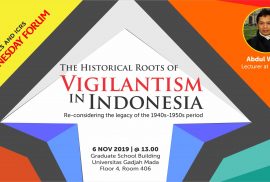
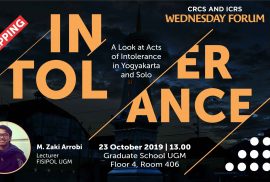
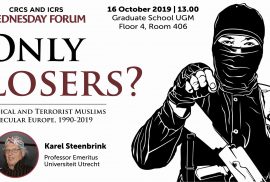
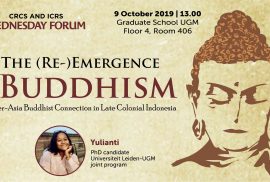
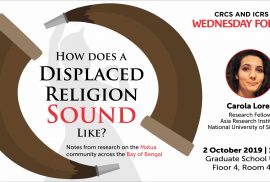
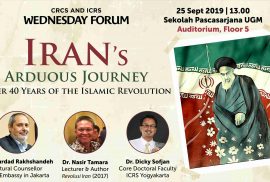
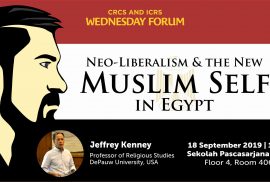
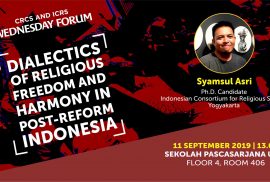
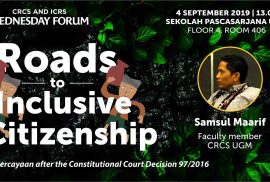
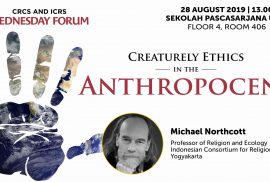
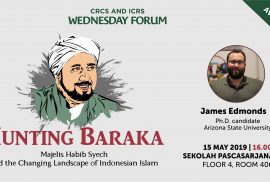
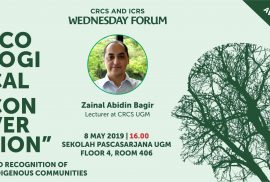
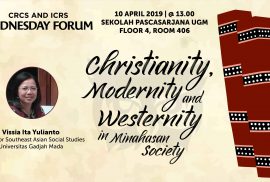
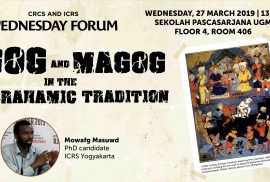

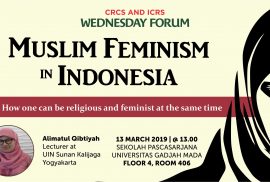
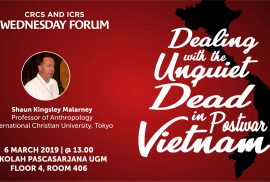
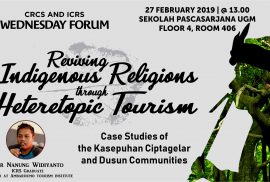
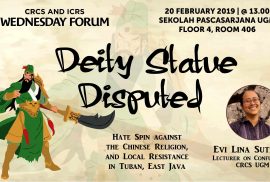
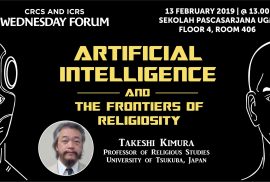
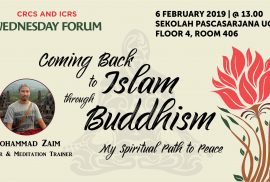
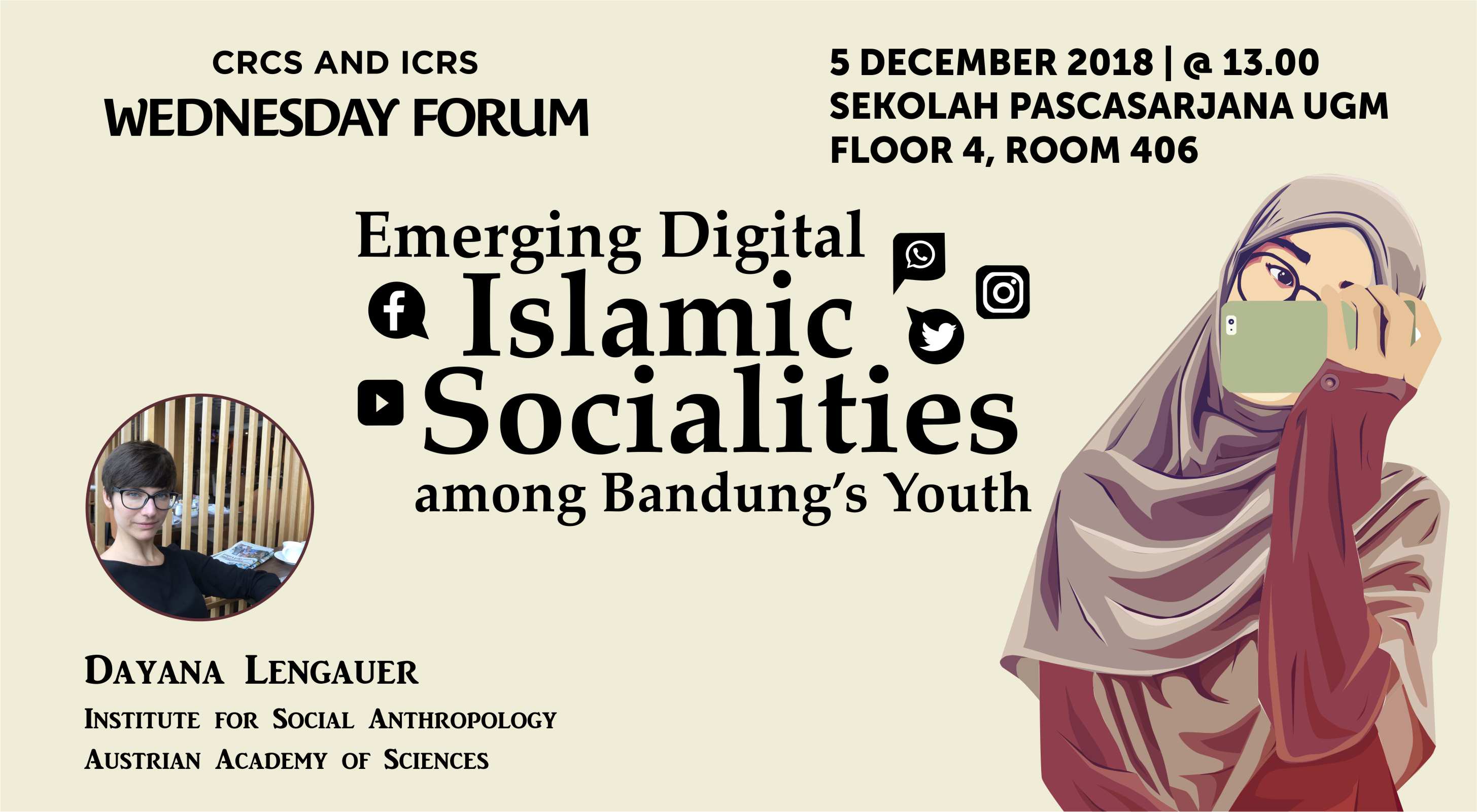
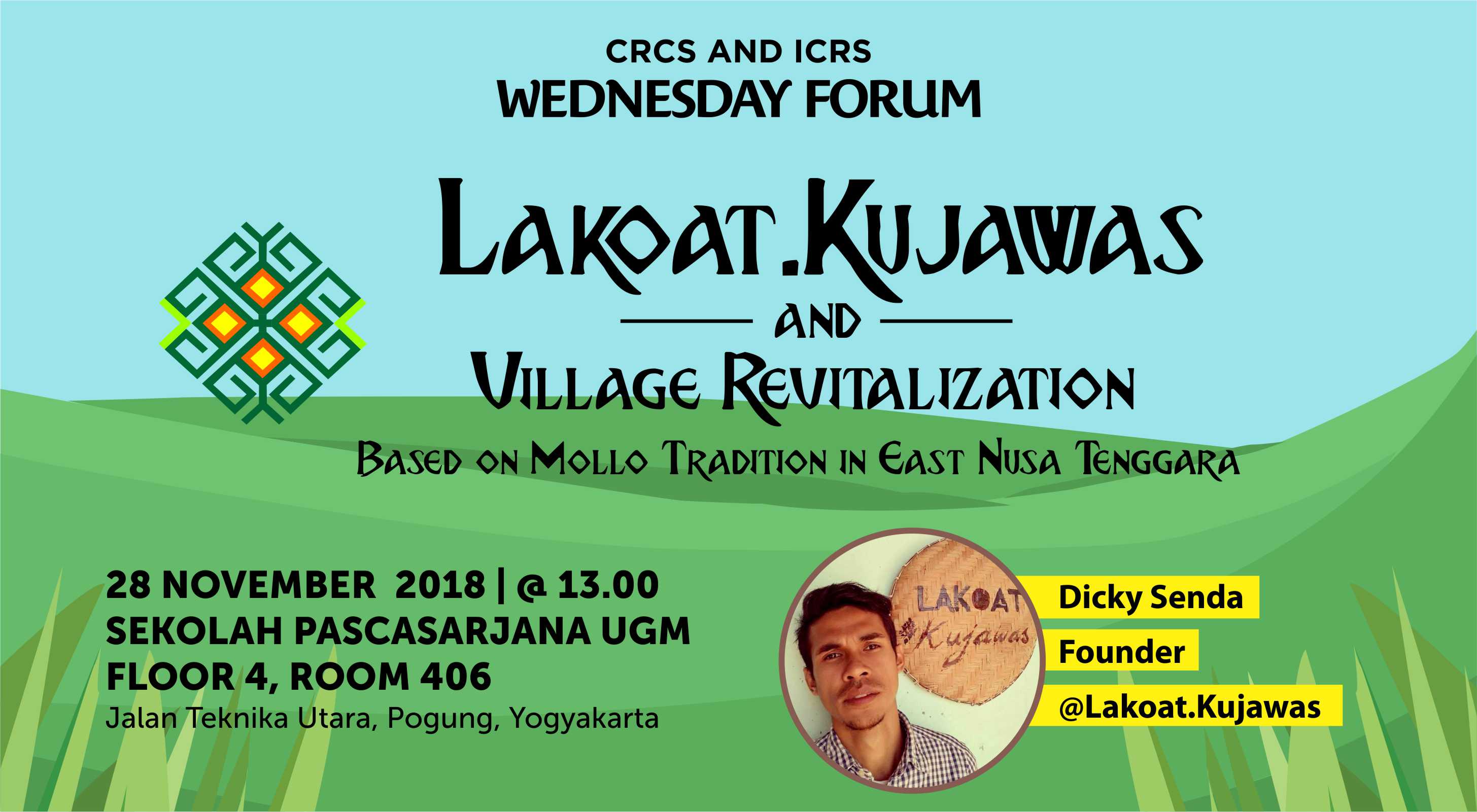
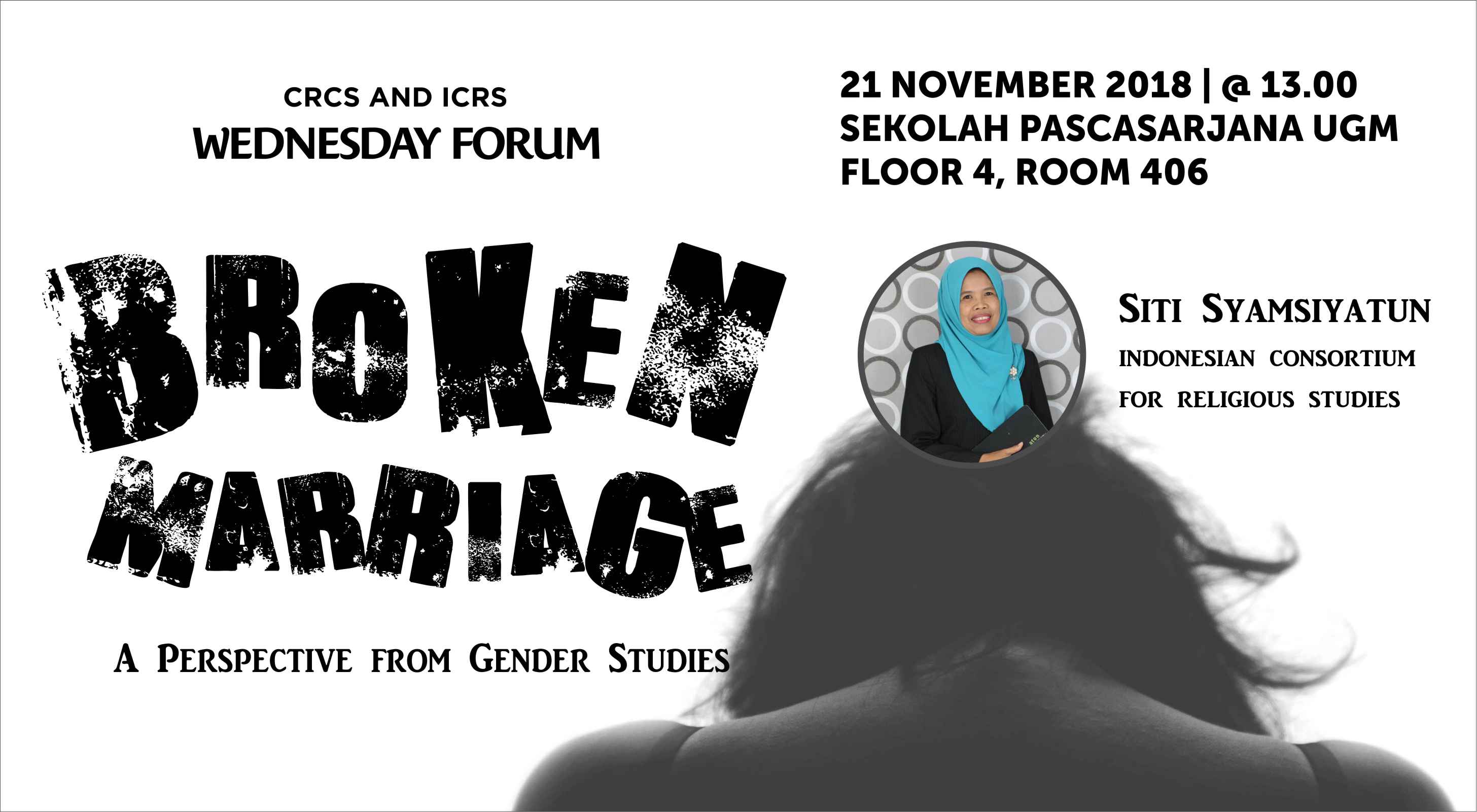
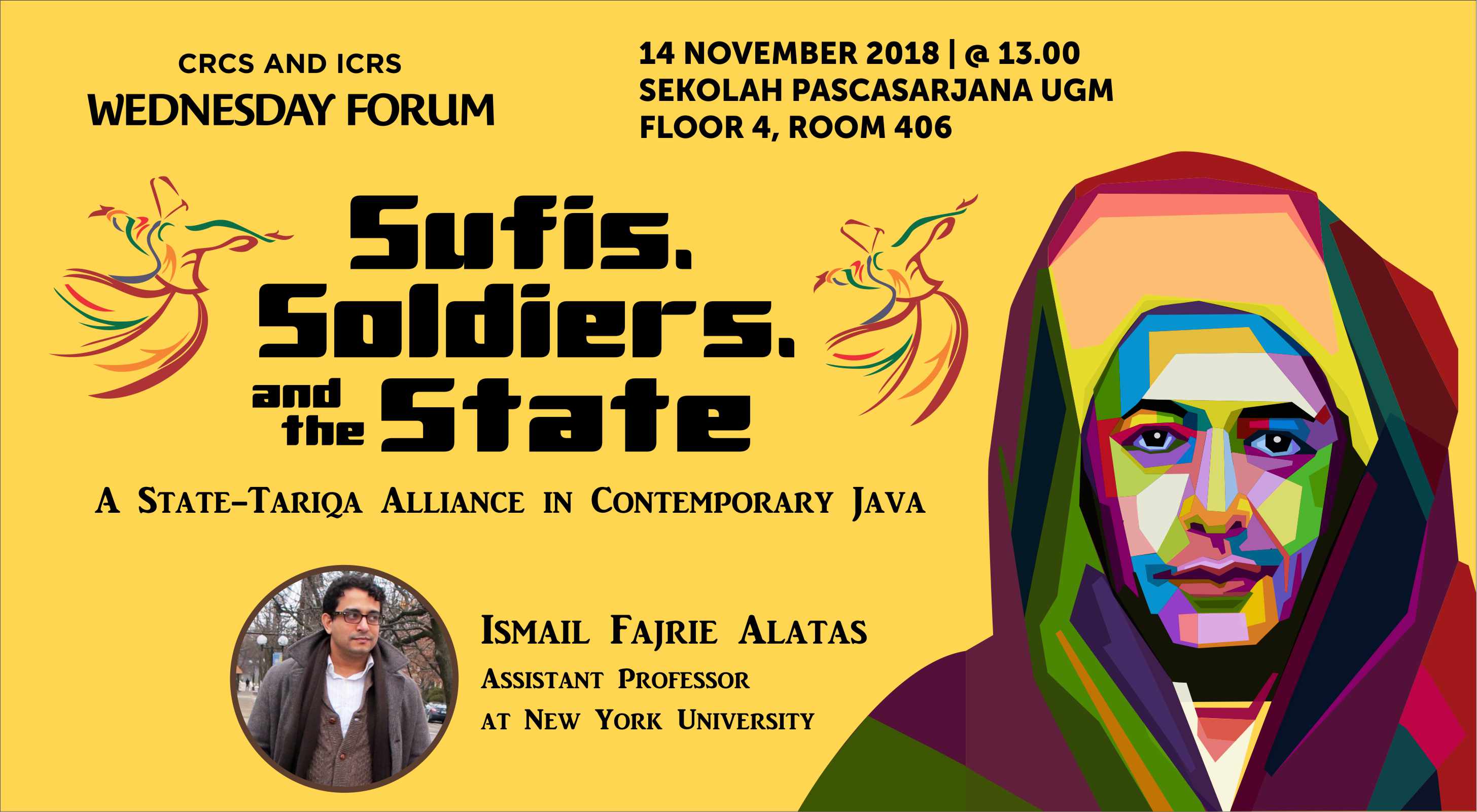
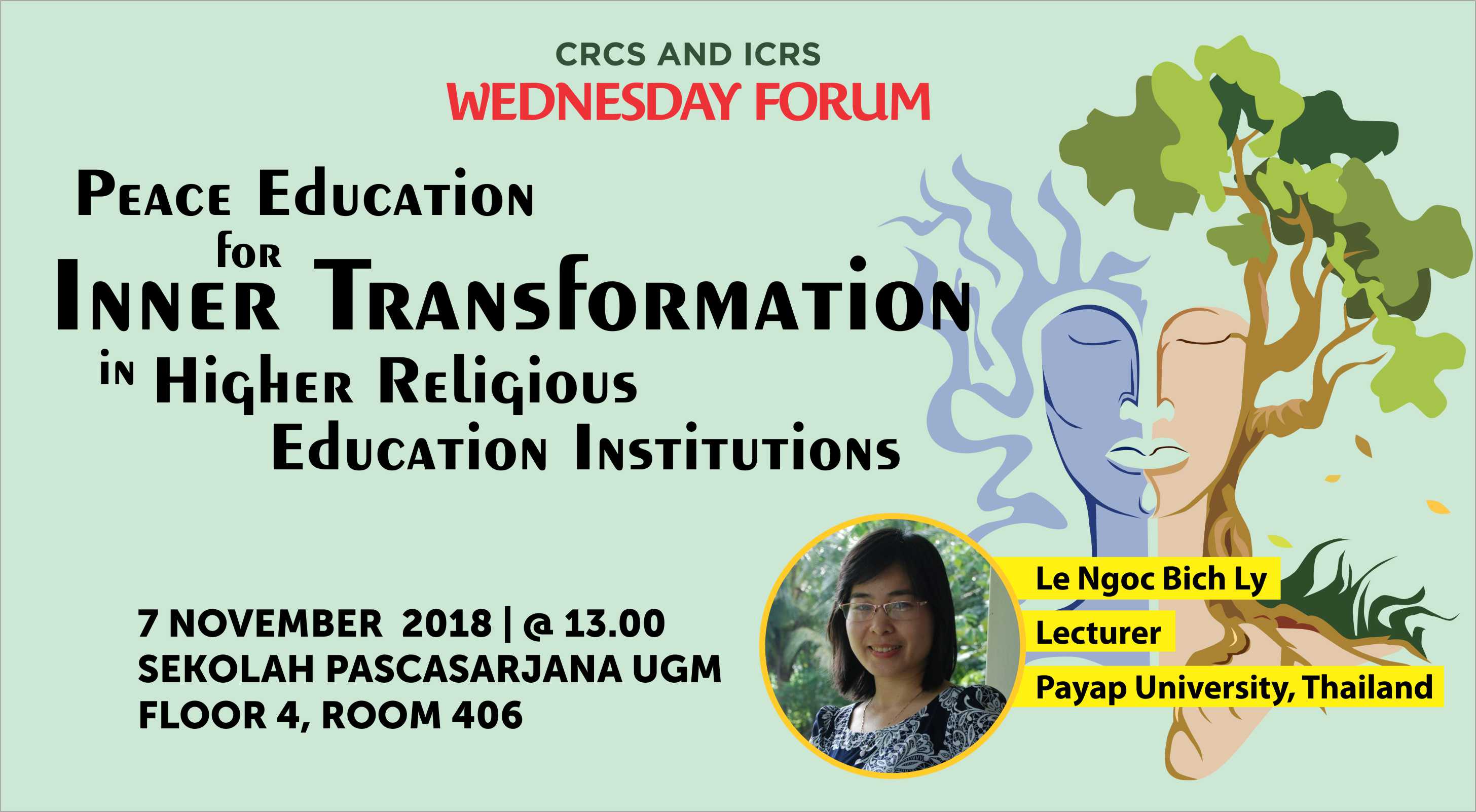
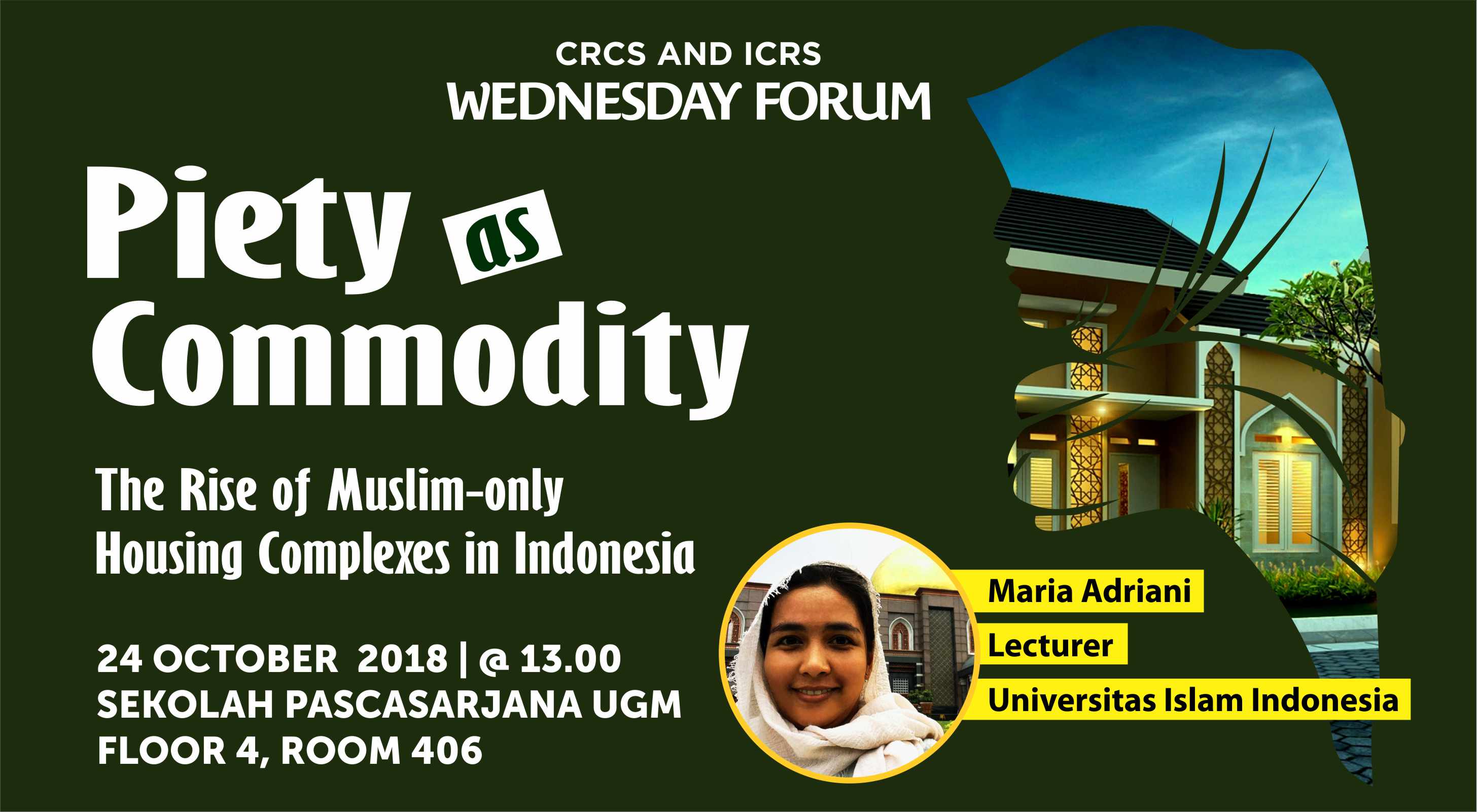
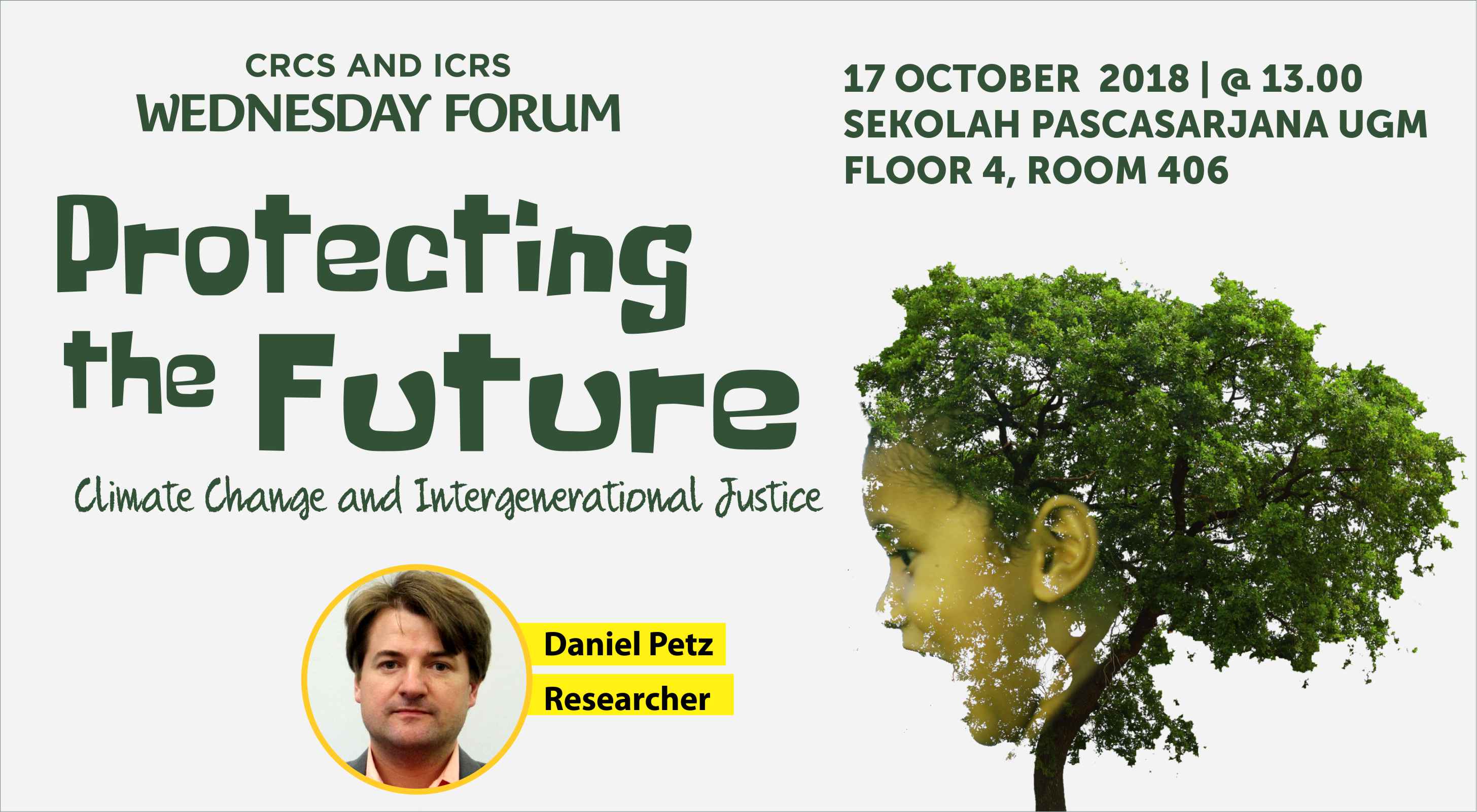
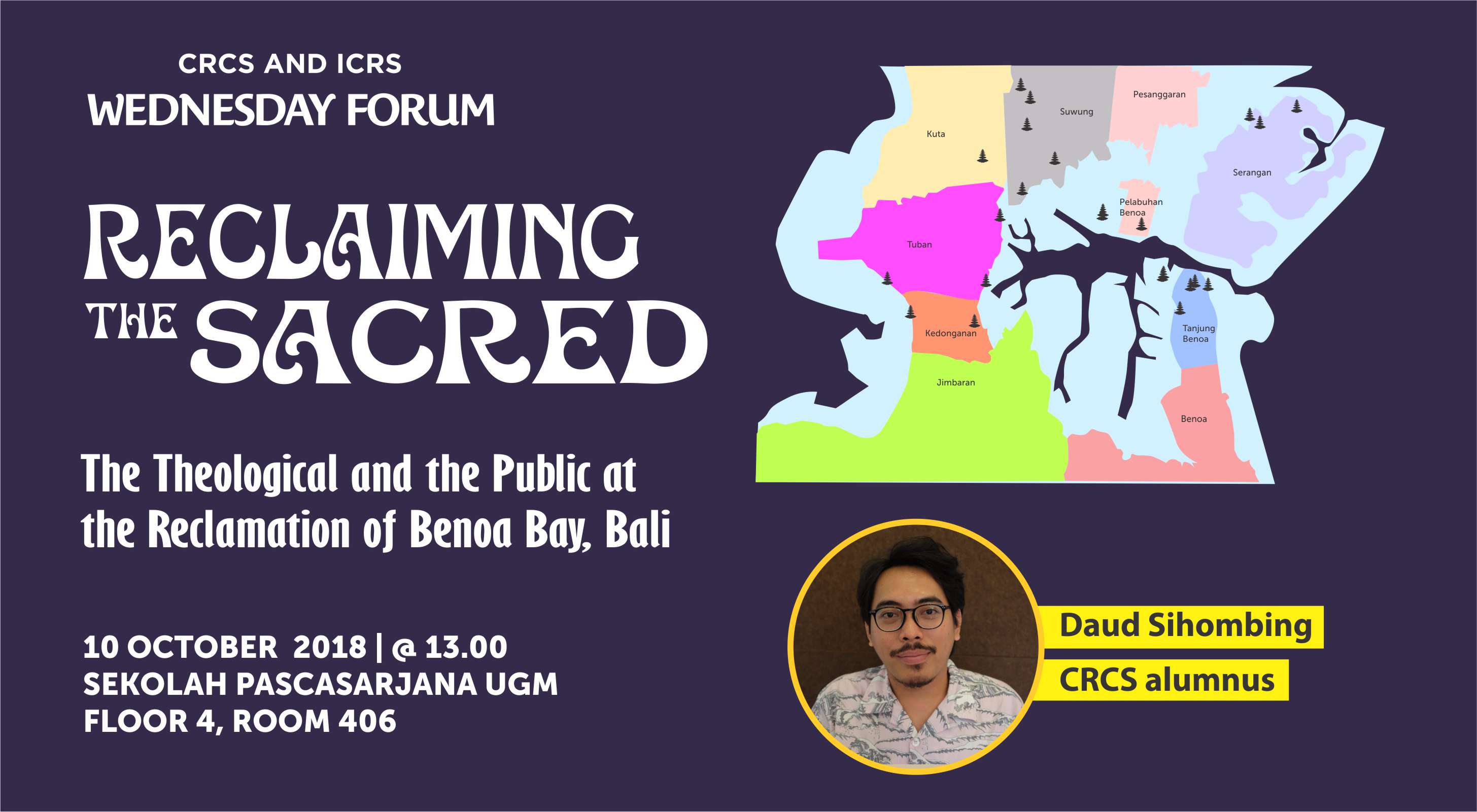
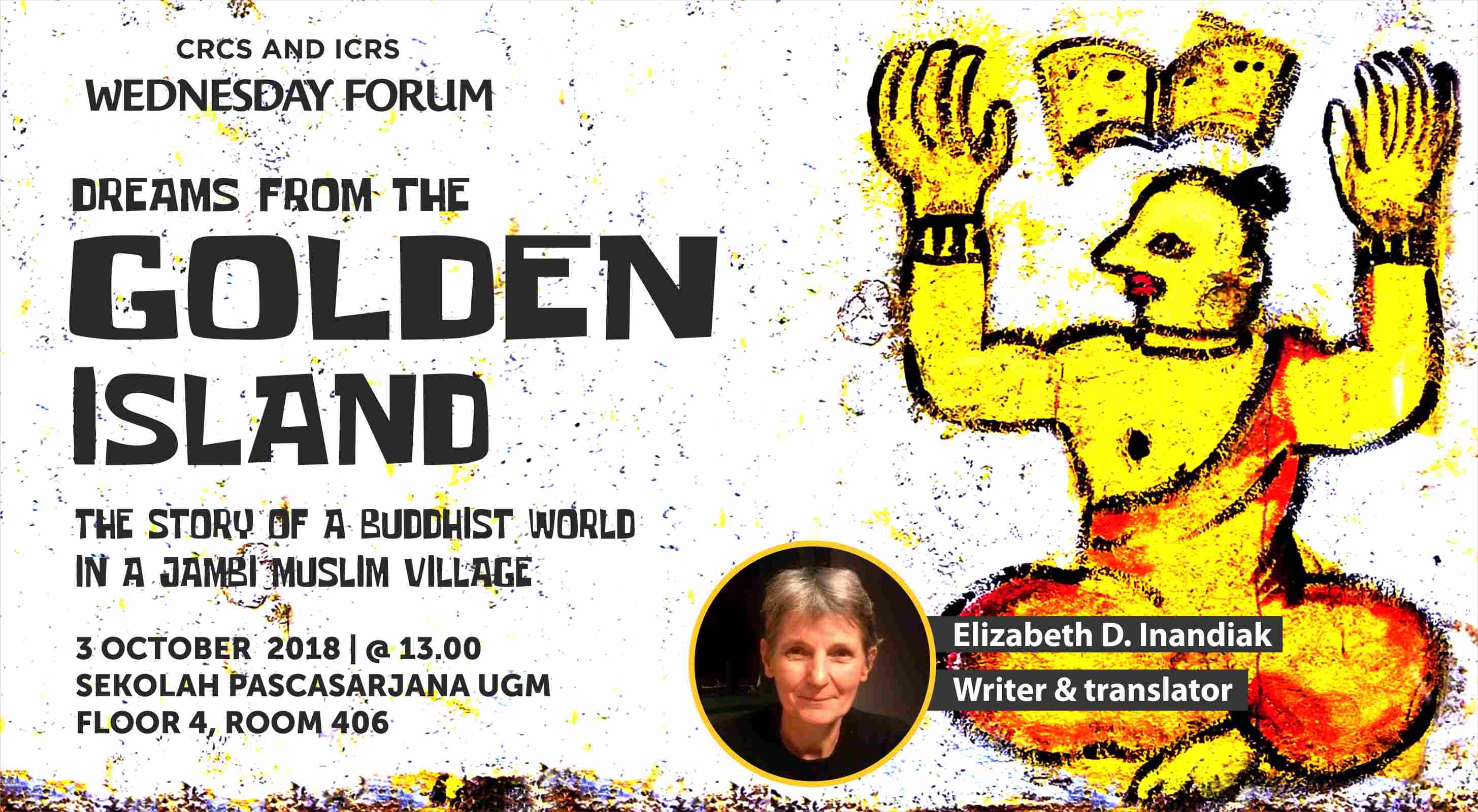
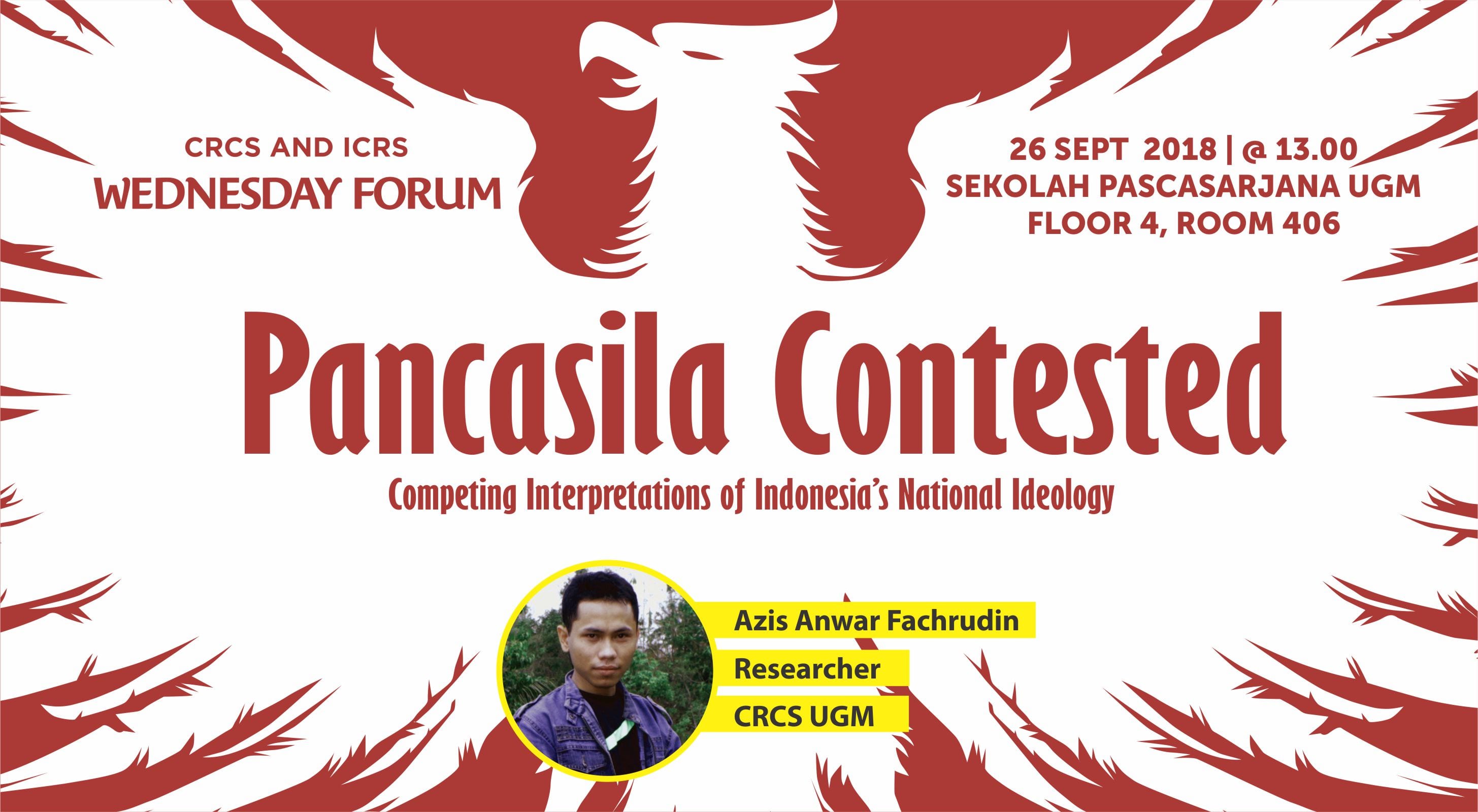
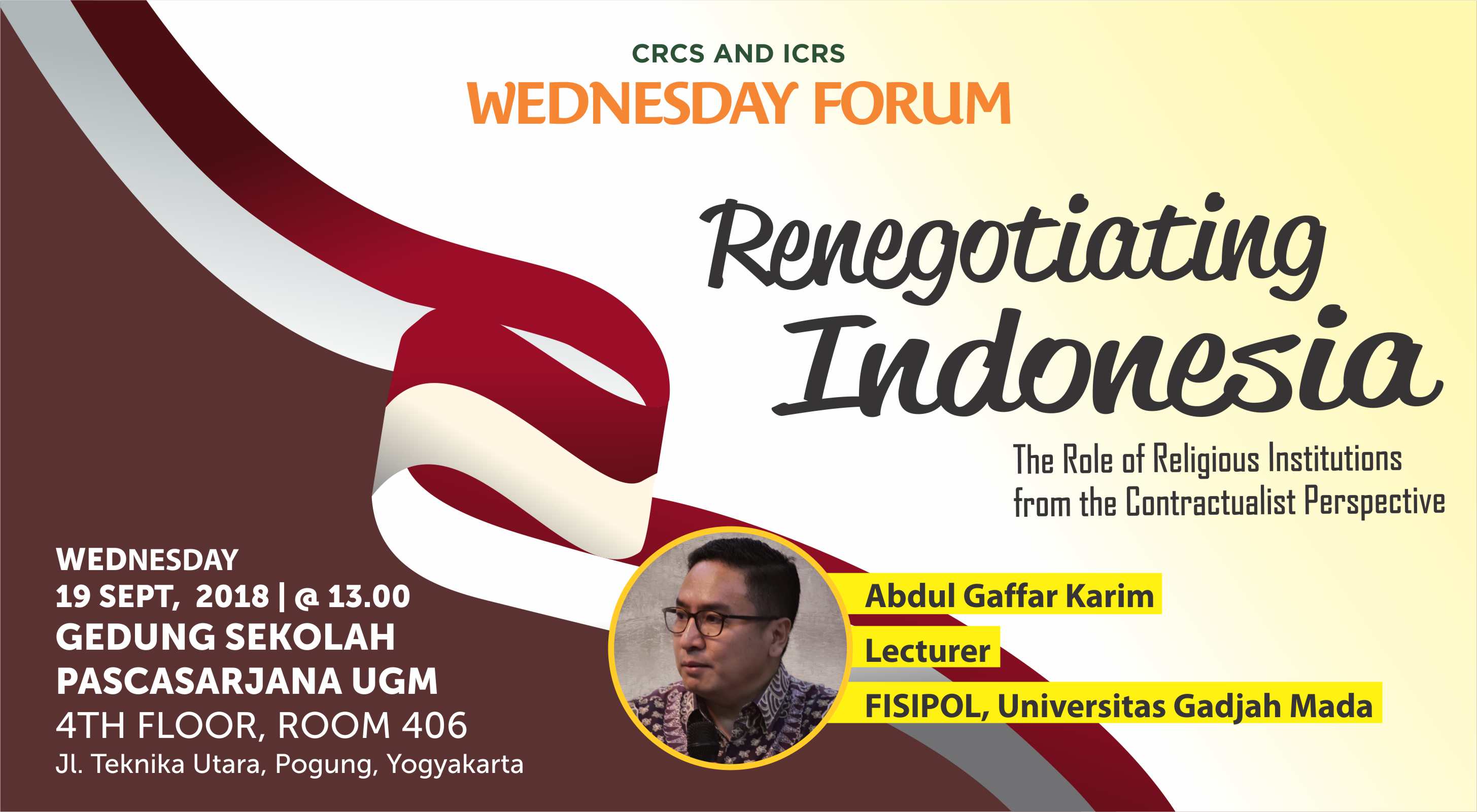
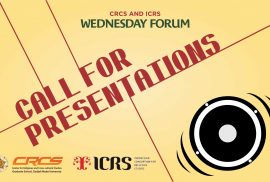
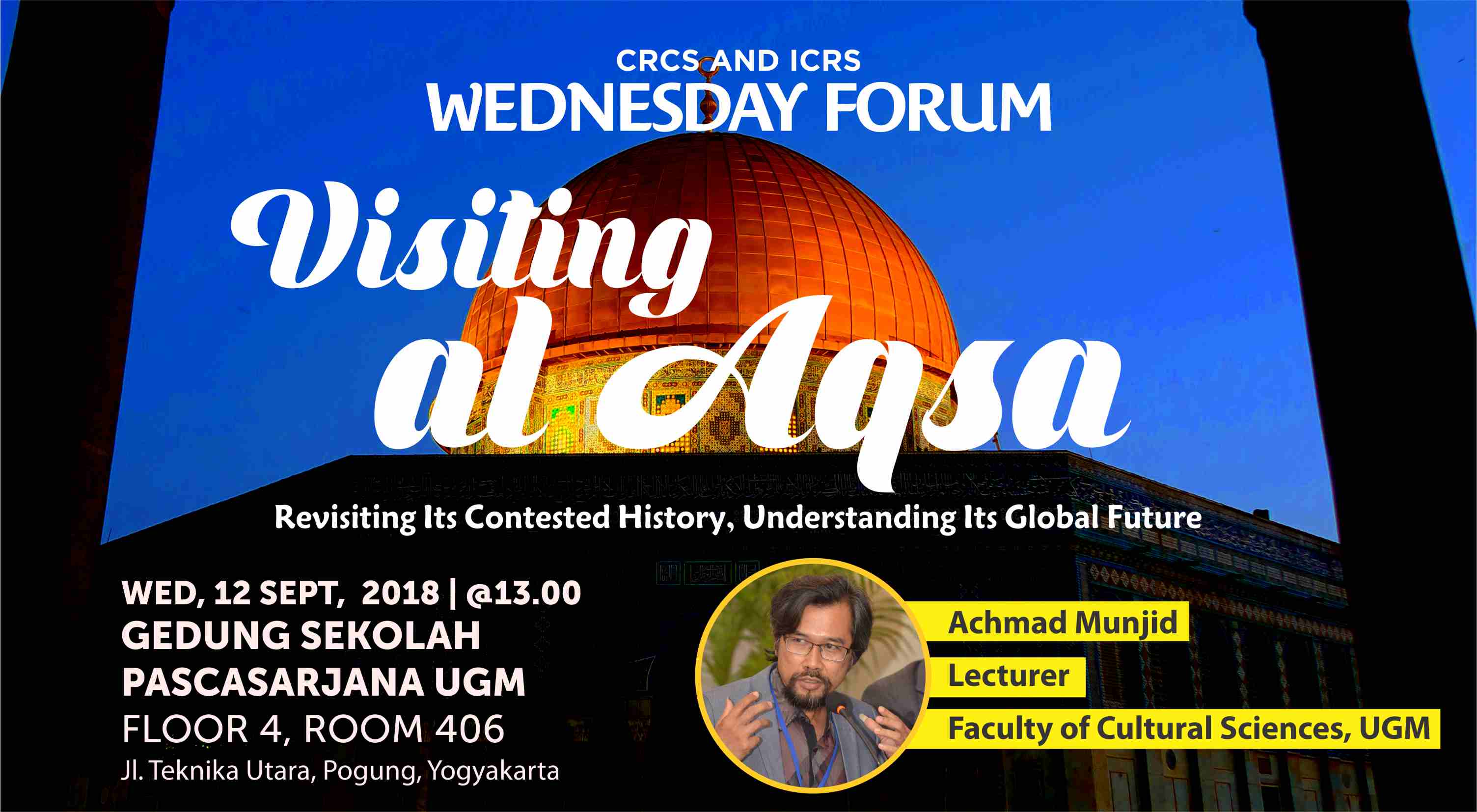
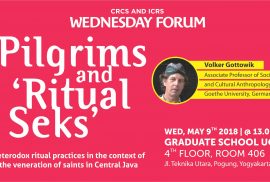


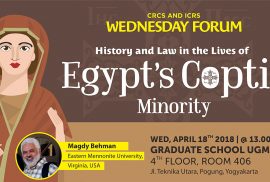

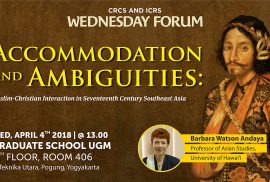
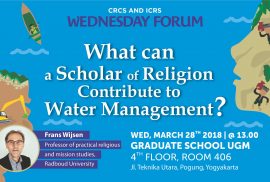
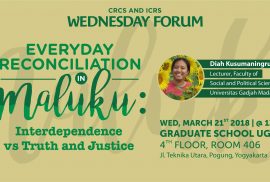
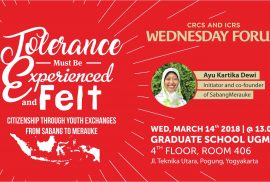
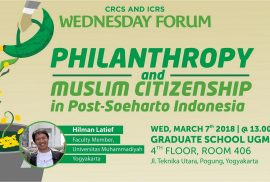

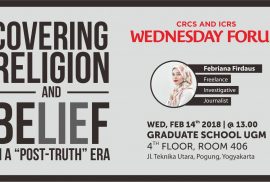
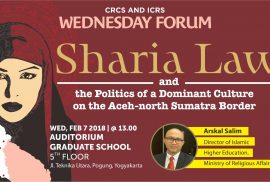
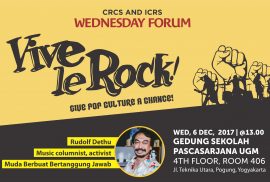
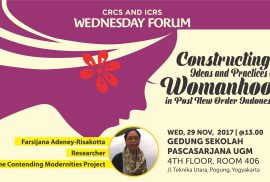
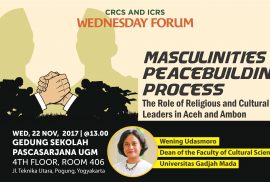
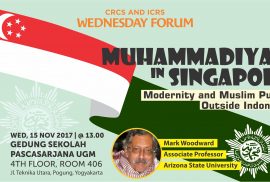
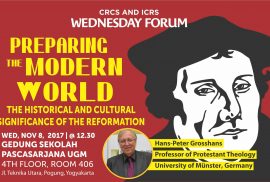
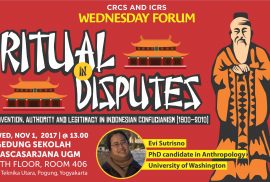
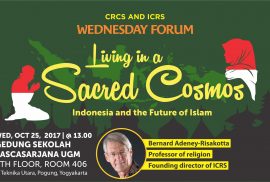
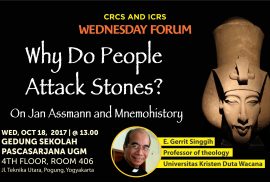
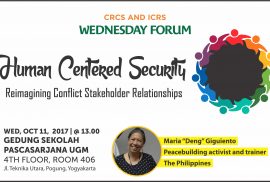
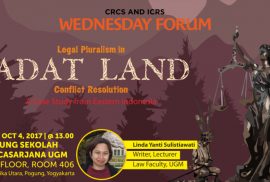
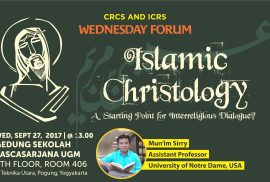
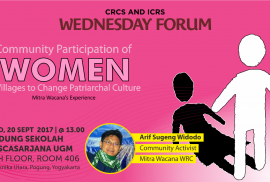
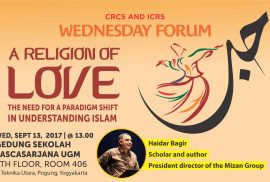
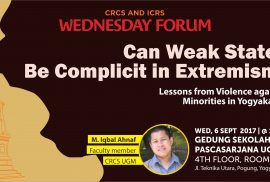
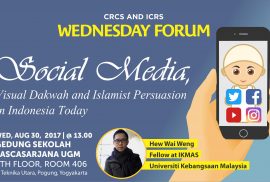
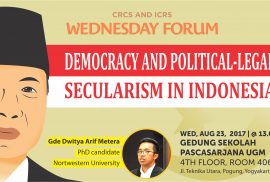


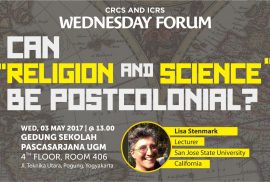

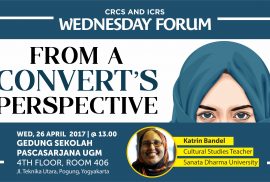



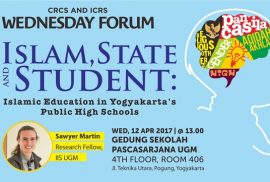

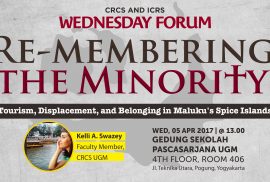



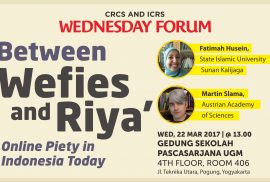

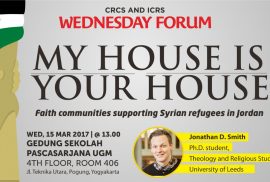

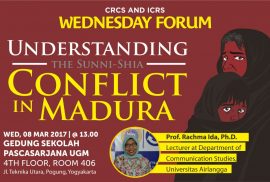





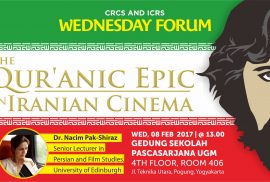

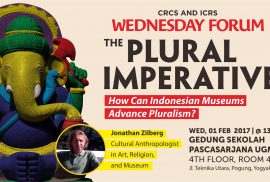

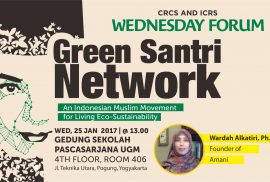

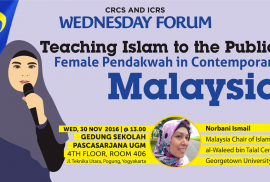

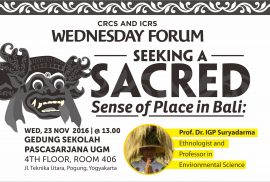

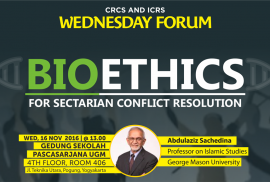

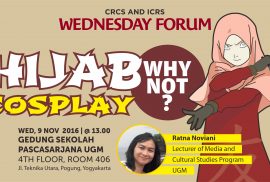

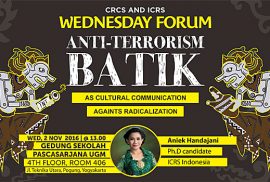

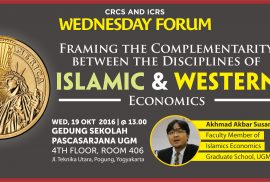

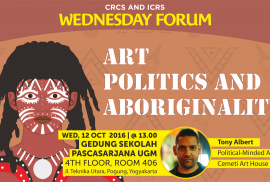

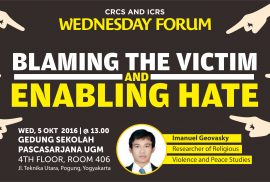

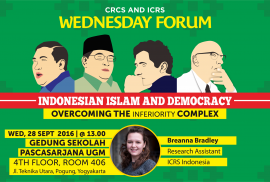




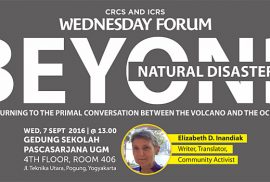

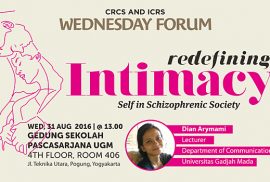

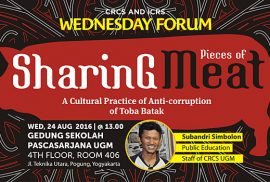

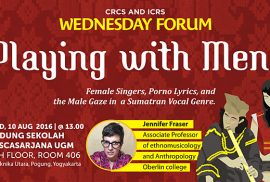

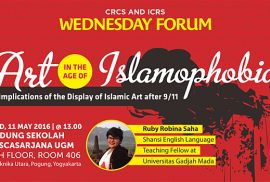

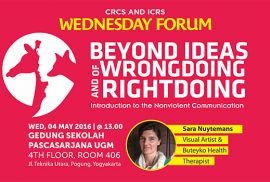



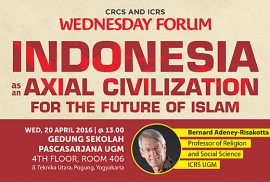

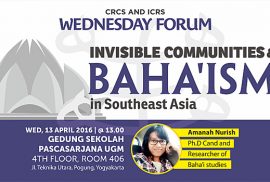

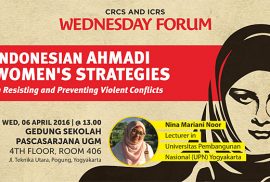


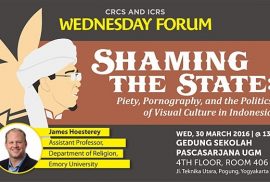
![IMG-20160323-WA0004[1]](http://web07.opencloud.dssdi.ugm.ac.id/wp-content/uploads/sites/73/2016/03/IMG-20160323-WA00041.jpg)
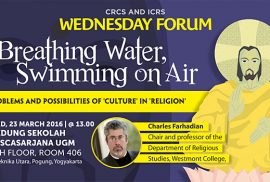

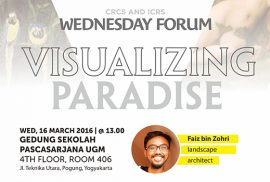

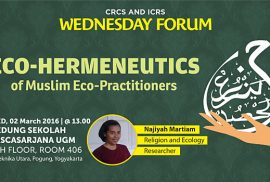

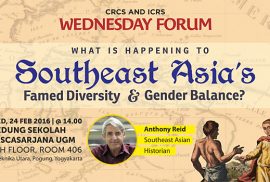

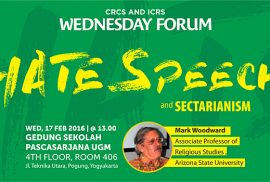

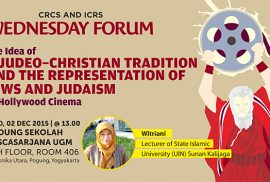

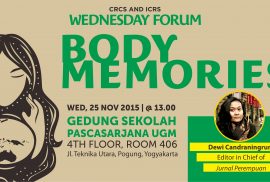


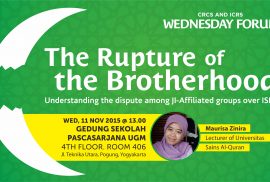

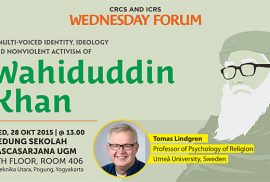





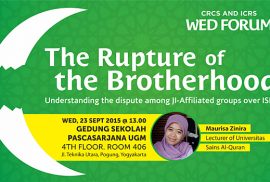

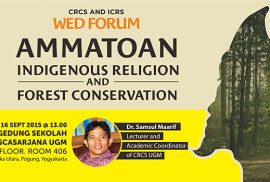

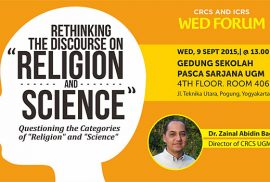

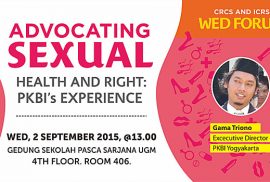

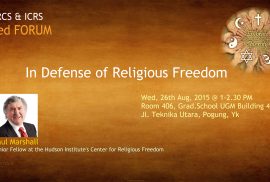

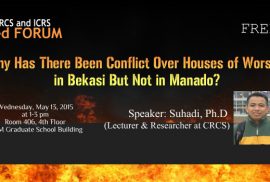

 Suhadi earned his Ph.D. from the Department of Philosophy, Theology, and Religious Studies, Radboud University Nijmegen. He is a lecturer at Center for Religious and Cross-cultural Studies, Graduate School, Universitas Gadjah Mada.
Suhadi earned his Ph.D. from the Department of Philosophy, Theology, and Religious Studies, Radboud University Nijmegen. He is a lecturer at Center for Religious and Cross-cultural Studies, Graduate School, Universitas Gadjah Mada.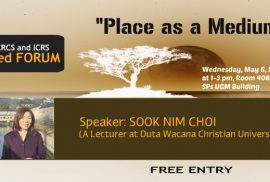

 SOOK NIM CHOI. Born in Seoul Korea, in her teen years her family emigrated to São Paulo, Brasil. Studied at Instituto de Matematica e Estatistica da Universidade de São Paulo. After marriage she went to the USA and earned a Bachelor of Fine Arts, at the San Francisco Art Institute, CA, and a Master of Fine Arts, concentration in Painting, at the University of California, Berkeley, where she taught Painting and Installation class for undergraduates. She also assisted all levels of teaching as the director of art in Palo Alto Art Studio. She has been an artist and still very actively exhibiting. She is a successful entrepreneur of ‘Pepe Francois’ a fashion design jewelry business in San Francisco and ‘Palo Alto Art Studio’ an art portfolio creating business in Silicon Valley for many years.
SOOK NIM CHOI. Born in Seoul Korea, in her teen years her family emigrated to São Paulo, Brasil. Studied at Instituto de Matematica e Estatistica da Universidade de São Paulo. After marriage she went to the USA and earned a Bachelor of Fine Arts, at the San Francisco Art Institute, CA, and a Master of Fine Arts, concentration in Painting, at the University of California, Berkeley, where she taught Painting and Installation class for undergraduates. She also assisted all levels of teaching as the director of art in Palo Alto Art Studio. She has been an artist and still very actively exhibiting. She is a successful entrepreneur of ‘Pepe Francois’ a fashion design jewelry business in San Francisco and ‘Palo Alto Art Studio’ an art portfolio creating business in Silicon Valley for many years.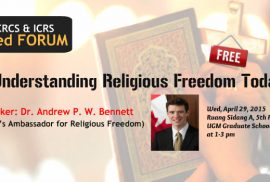

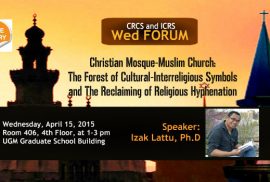

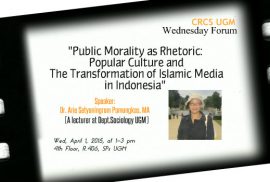

 Dr. Arie Setyaningrum Pamungkas, MA is a lecturer and researcher at Dept.Sociology Gadjah Mada University Yogyakarta Indonesia. She obtained BAin Sociology in 1998 from Gadjah Mada University and MA in Sociology and Cultural Studies in 2003 from The University of Sydney, Australia. Her PhD is in Southeast Asian Studies from Humboldt University of Berlin in 2014 on dissertation titled ‘The Dakwah Media in Post Suharto Indonesia: From Politics of Identity to Popular Culture.’
Dr. Arie Setyaningrum Pamungkas, MA is a lecturer and researcher at Dept.Sociology Gadjah Mada University Yogyakarta Indonesia. She obtained BAin Sociology in 1998 from Gadjah Mada University and MA in Sociology and Cultural Studies in 2003 from The University of Sydney, Australia. Her PhD is in Southeast Asian Studies from Humboldt University of Berlin in 2014 on dissertation titled ‘The Dakwah Media in Post Suharto Indonesia: From Politics of Identity to Popular Culture.’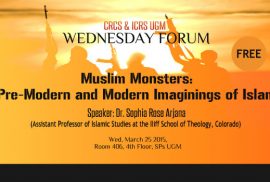


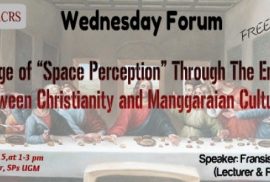

 Fransiskus Borgias. M, Lecturer and Researcher at Philosophy and Theology Department of Catholic University of Parahyangan Bandung. Study philosophy in STF Driyarkara Jakarta (BA). Studied Theology in Major Seminary Sancti Pauli Kentungan Yogyakarta (S1). Study masteral for intercultural theology in Radboud University Nijmegen, Nederland. Ph.D.,Candidate in ICRS Yogya. Write 10 books and translate 8 books. Visiting Researcher at Theology Department of Georgetown University, Washington DC, USA.
Fransiskus Borgias. M, Lecturer and Researcher at Philosophy and Theology Department of Catholic University of Parahyangan Bandung. Study philosophy in STF Driyarkara Jakarta (BA). Studied Theology in Major Seminary Sancti Pauli Kentungan Yogyakarta (S1). Study masteral for intercultural theology in Radboud University Nijmegen, Nederland. Ph.D.,Candidate in ICRS Yogya. Write 10 books and translate 8 books. Visiting Researcher at Theology Department of Georgetown University, Washington DC, USA.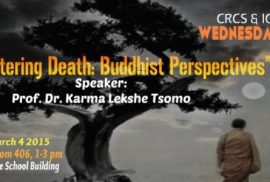
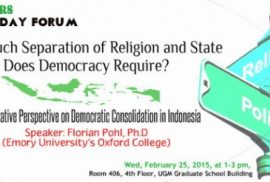













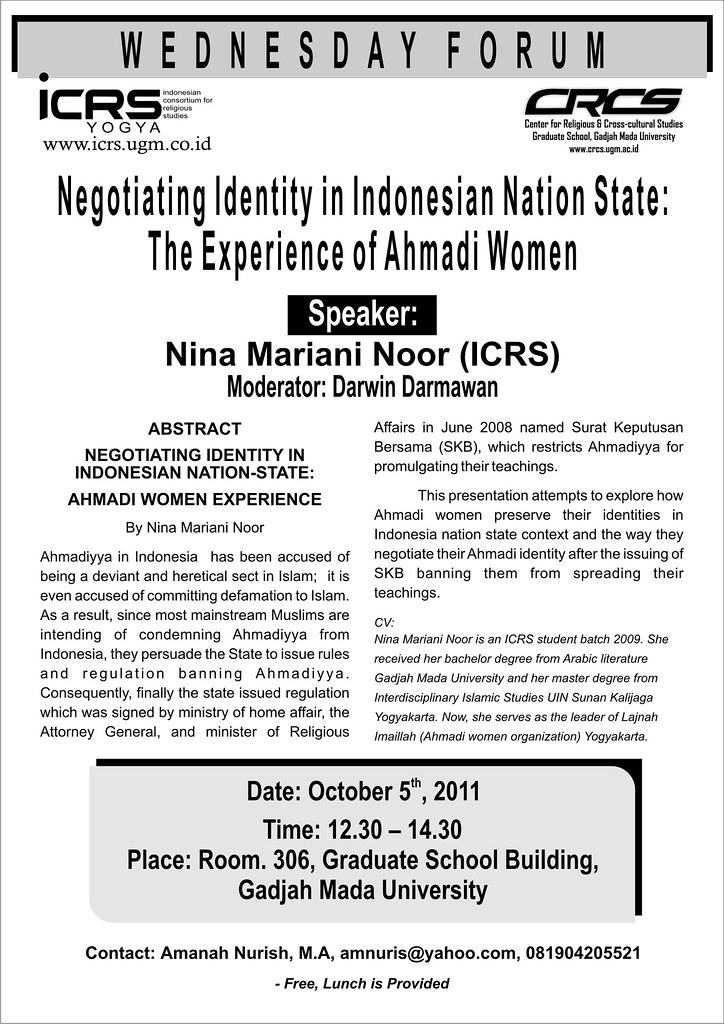
 “There were many unreported huge seismic events in Sumatera,” said Anthony Reid in his public lecture ‘Rewriting (Sumatran) History in the Light of Seismology’ held by CRCS-ICRS GMU on Wednesday, 13 July 2011. This special event was held in the room 306 CRCS-ICRS UGM and attended by both Indonesian and foreign academics.
“There were many unreported huge seismic events in Sumatera,” said Anthony Reid in his public lecture ‘Rewriting (Sumatran) History in the Light of Seismology’ held by CRCS-ICRS GMU on Wednesday, 13 July 2011. This special event was held in the room 306 CRCS-ICRS UGM and attended by both Indonesian and foreign academics. It was on May 2, 2011 that Dr. Teresa Murphy came to CRCS GMU to be the speaker of the weekly Wednesday Forum. Under the title ‘The Importance of Religion in the US Labor Movement in the Early Nineteenth Century’ Dr. Murphy, a professor from George Washington University, tried to demonstrate the relation between religious change and the labor movement in the 1840s. In this presentation, Dr. Murphy also stressed the women’s important role in the labor movement. At first, Murphy described the Christian revival in the early 19th century in the United States, known as the Second Great Awakening. The number of conversions escalated greatly during this period, and participation in religious institutions exploded, leading to contestation of the traditional church hierarchy due to the more open concept of religious leadership. Religious services were no longer held solely in churches, but also in open encamps where women and the slaves could participate.
It was on May 2, 2011 that Dr. Teresa Murphy came to CRCS GMU to be the speaker of the weekly Wednesday Forum. Under the title ‘The Importance of Religion in the US Labor Movement in the Early Nineteenth Century’ Dr. Murphy, a professor from George Washington University, tried to demonstrate the relation between religious change and the labor movement in the 1840s. In this presentation, Dr. Murphy also stressed the women’s important role in the labor movement. At first, Murphy described the Christian revival in the early 19th century in the United States, known as the Second Great Awakening. The number of conversions escalated greatly during this period, and participation in religious institutions exploded, leading to contestation of the traditional church hierarchy due to the more open concept of religious leadership. Religious services were no longer held solely in churches, but also in open encamps where women and the slaves could participate. Buddhist ancient sites around Yogyakarta have been marginalized under the shadow of Prambanan Hindu temple, the biggest in the region, said Kris Budiman in his presentation at CRCS-ICRS Wednesday forum held on May 11th 2011. A lecturer at post-graduate program of Media and Cultural studies GMU tried to capture the condition of the Buddhist sites and constellations between the government, the Buddhists and local people living in the neighborhood.
Buddhist ancient sites around Yogyakarta have been marginalized under the shadow of Prambanan Hindu temple, the biggest in the region, said Kris Budiman in his presentation at CRCS-ICRS Wednesday forum held on May 11th 2011. A lecturer at post-graduate program of Media and Cultural studies GMU tried to capture the condition of the Buddhist sites and constellations between the government, the Buddhists and local people living in the neighborhood. Dr. Judith Schlehe, German Anthropologist who has also a specialization in South Asian Studies, was the speaker for the CRCS-ICRS Wednesday Forum on April 13th 2011. Dr. Judith Schlehe made her presentation on ‘Bukit Kasih, the Hill of Love: Multireligiosity for Pleasure’. It is the result of her field research on tourism site in North Sulawesi called Bukit Kasih (Hill of Love) which has a concept of inter-religious tourism marked by worship houses of different religions.
Dr. Judith Schlehe, German Anthropologist who has also a specialization in South Asian Studies, was the speaker for the CRCS-ICRS Wednesday Forum on April 13th 2011. Dr. Judith Schlehe made her presentation on ‘Bukit Kasih, the Hill of Love: Multireligiosity for Pleasure’. It is the result of her field research on tourism site in North Sulawesi called Bukit Kasih (Hill of Love) which has a concept of inter-religious tourism marked by worship houses of different religions. It was on the 6 April 2011 when the CRCS-ICRS Wednesday Forum had Abdul Hamid Robinson-Royal to be the presenter of the discussion. Bringing the title ‘Islam in America, from Hajj to Hip Hop and from Roots to Rap’ this Ph.D. student of the Graduate Theological Union, Berkeley, California, who takes the fellowship program in ICRS Yogyakarta delivered a presentation about the Muslims of USA, highlighting African-American Muslims, their history and identity.
It was on the 6 April 2011 when the CRCS-ICRS Wednesday Forum had Abdul Hamid Robinson-Royal to be the presenter of the discussion. Bringing the title ‘Islam in America, from Hajj to Hip Hop and from Roots to Rap’ this Ph.D. student of the Graduate Theological Union, Berkeley, California, who takes the fellowship program in ICRS Yogyakarta delivered a presentation about the Muslims of USA, highlighting African-American Muslims, their history and identity. Last December 22nd, 2010 was the last edition of CRCS-ICRS Wednesday Forum for the first semester of 2010. The speaker was the Director of the CRCS UGM, Dr. Zainal Abidin Bagir, whose presentation titled “Religious Freedom, Harmony and ‘the Middle Way’: Analysis of the Indonesian Constitutional Court’s 2010 Decision on the Law on Defamation of Religion”.
Last December 22nd, 2010 was the last edition of CRCS-ICRS Wednesday Forum for the first semester of 2010. The speaker was the Director of the CRCS UGM, Dr. Zainal Abidin Bagir, whose presentation titled “Religious Freedom, Harmony and ‘the Middle Way’: Analysis of the Indonesian Constitutional Court’s 2010 Decision on the Law on Defamation of Religion”. CRCS-ICRS Wednesday Forum on 15 December 2010 was a homecoming story of Mark Woodward, one of the lecturers of CRCS UGM from the United States. Woodward, a professor of Arizona State University, during his return, was observing the development of political issues in his country. He found polemics related with constructing plan of an Islamic cultural center in New York named Park51 or Cordoba House that is likely known as Ground Zero Mosque, a title given due to effects of political sentiment.
CRCS-ICRS Wednesday Forum on 15 December 2010 was a homecoming story of Mark Woodward, one of the lecturers of CRCS UGM from the United States. Woodward, a professor of Arizona State University, during his return, was observing the development of political issues in his country. He found polemics related with constructing plan of an Islamic cultural center in New York named Park51 or Cordoba House that is likely known as Ground Zero Mosque, a title given due to effects of political sentiment. nterfaith dialogues organized by religious communities, academic schools, governmental institutions, and NGOs have been identical to the role of senior figures. As the consequence, the role of the youth which is actually potential, is somewhat neglected in the effort of developing dialogue. The topic of revitalizing the role youth in interfaith dialogue was the issue raised by Roma Ulinnuha, an ICRS student, when speaking in Wednesday Forum on 08 December 2010.
nterfaith dialogues organized by religious communities, academic schools, governmental institutions, and NGOs have been identical to the role of senior figures. As the consequence, the role of the youth which is actually potential, is somewhat neglected in the effort of developing dialogue. The topic of revitalizing the role youth in interfaith dialogue was the issue raised by Roma Ulinnuha, an ICRS student, when speaking in Wednesday Forum on 08 December 2010. In the study of Islamic philosophy, the name of Shihabuddin Suhrawardi is well-known for his illuminative philosophical concept. He was a controversial figure in his time that he tried to combine the concept of philosophy with mysticism. In Wednesday Forum CRCS-ICRS December 1st 2010, this figure was elaborated by John Compaglia, a student of Graduate Theological Union, Berkeley, and a holder of the Luce Fellowship Program at UGM, presenting “The Context and Content of Suhrawardi’s Use of Cosmogonic and Cosmological Doctrines in His Philosophical Allegories”.
In the study of Islamic philosophy, the name of Shihabuddin Suhrawardi is well-known for his illuminative philosophical concept. He was a controversial figure in his time that he tried to combine the concept of philosophy with mysticism. In Wednesday Forum CRCS-ICRS December 1st 2010, this figure was elaborated by John Compaglia, a student of Graduate Theological Union, Berkeley, and a holder of the Luce Fellowship Program at UGM, presenting “The Context and Content of Suhrawardi’s Use of Cosmogonic and Cosmological Doctrines in His Philosophical Allegories”. One of the social phenomena feasible to be examined comprehensively is the issue of suicide. The frequency of suicides is relatively high and closely related to various aspects of human life. Addressing this issue, therefore, must be begun with a thorough study involving interdisciplinary methodology as delivered by Dicky Sofjan, Ph.D in his presentation at CRCS-ICRS Wednesday Forum on Wednesday, 27 October 2010.
One of the social phenomena feasible to be examined comprehensively is the issue of suicide. The frequency of suicides is relatively high and closely related to various aspects of human life. Addressing this issue, therefore, must be begun with a thorough study involving interdisciplinary methodology as delivered by Dicky Sofjan, Ph.D in his presentation at CRCS-ICRS Wednesday Forum on Wednesday, 27 October 2010.